Primary Target Read online
Page 6
“Yeah,” Don said. “You might want to go say hello before she finds someone better. Around here? It won’t take long.”
“Why… why did you bring her here?”
Don shrugged. He looked around at the Burger King parking lot.
“It’s more romantic than meeting her back at the base.”
Then Luke was out of the car. He seemed to float to her. They embraced, and he held her for a long time. Endlessly. He never wanted to let go of her.
For the first time, Luke felt tears streaming down his own face. He breathed deeply. It felt so good to hold her. He didn’t speak. He couldn’t think of a single word to say.
She looked up at him and rubbed the tears away from his face.
“Isn’t it great?” she said. “Don said you’re going to work for him.”
Luke nodded. He still didn’t speak. It seemed like it was settled, then. Don and Becca had made the decision for him.
“I love you so much, Luke,” she said. “I’m so glad this military life is over.”
CHAPTER SIX
May 3
7:15 a.m. Eastern Daylight Time
Headquarters of the Special Response Team
McLean, Virginia—Suburbs of Washington, DC
“I think I might have something for you,” Don Morris said.
They were sitting in Don’s new office. The place was starting to take shape. There were photos of his wife and kids on the desk, framed ribbons and proclamations on the walls. The desk itself was a wide expanse of gleaming oak. On top of it sat a telephone console, a computer monitor, a cell phone, a satellite phone, and not much else. Don wasn’t a big believer in paperwork.
“Something to get you out in the field a bit. You’ve seemed a little antsy since you came here. This might cure that.”
Luke stared at him. It was almost as if Don had just read his mind. Don had done him a favor by giving him this job. Luke knew that. It was a lifeline thrown to a drowning man. But Luke was already inching toward the door. It had been weeks of sitting and talking so far. Luke was bored. That was okay. The danger was that if it went on too long, he would start to go crazy. Desk-bound intelligence work was not for him. That was beginning to become abundantly clear.
“I’m all ears,” Luke said.
Don gestured back out the open door to his office. “Let’s go down the hall.”
Luke followed Don along the narrow hallway to the brightly lit conference room at the other end. This small office complex had been a satellite office for the Bureau of Housing and Urban Development until six months ago. Don was working to drag the building into the twenty-first century a little bit.
With that in mind, a tall young guy with a ponytail and wearing strange wraparound aviator glasses was hanging a flat-panel display on one wall. Another display was already on the far wall, wires running to a control panel on the long conference table. The guy was wearing a red, white, and blue T-shirt, jeans and red Converse All-Star high-top sneakers.
Luke barely looked at him. He assumed that he was a technician from a government contractor agency, or possibly some techie buried deep inside the FBI.
“Luke, have you met Mark Swann?” Don said, casually blowing those thoughts out of the water. “He’s our new systems designer and operator, in charge of our intelligence networks, Internet, satellite connections… Mark’s going to wear a lot of hats, at least for a little while. Mark Swann, this is Agent Luke Stone. Luke is our first field agent, although we are about to add a couple more.”
The guy turned around. He was skinny. He had stovepipe legs. The front of his American flag shirt read “We’re Number 31!”
The guy’s eyes met Luke’s. Luke sized him up quickly. He was young, maybe early twenties—he looked even younger than that. He was confident bordering on arrogant. He was smart. He had probably been a computer geek in high school. He and Luke were going to be in different departments. This guy’s thing was equipment—taking it apart, putting it back together, making it hum. He had probably never participated in a moment of violence in his life, and might not have witnessed any such moments.
They shook hands.
“We’re number thirty-one, are we?” Luke said. “What are we number thirty-one at?”
The guy shrugged and smiled.
“I don’t know, man. Maybe you can guess.”
Luke nearly laughed.
“I can’t guess,” he said. “Maybe you can just help me out a little.”
“Healthcare,” the guy said. “We’re number thirty-one in healthcare, according to the World Health Organization. We’re number one in healthcare expenditures, though, if you’re looking for something to be proud about.”
Luke was still holding the guy’s hand.
“I’d be proud to break a few of your bones, and see what a good job American doctors do putting them back together. But you’d probably prefer to get them fixed in Mexico.”
Swann took his hand back. “Cuba, maybe. Or Canada.”
“Very nice, Mark,” Don said. “I’m sure Agent Stone is glad to discover that he’s been risking his neck all these years for a country with such a mediocre healthcare performance.”
Don gestured with his head at the audiovisual set-up. “How’s it coming?”
Mark nodded. “The first display is ready to go. High-definition, high-speed connection. You can pull that keyboard up on the table there, and that small screen, and access any of your own files just by using your login. You can choose whatever you want to share and it’ll come up on the big screen. I can easily make that ability available to anyone in the building—I just wanted you to take it for a test drive first, see how you like it.”
Don nodded. “Very cool. What about visitors? Also, what about sharing information with other venues?”
The kid Mark Swann raised his hands as if to say Don’t shoot! “It’s coming. But we’re going to want airtight encryption before we start broadcasting intelligence outside the building. You can email anything you want. But in terms of putting up video imagery or data that appear elsewhere, or bringing broadcasts in here? That’ll happen on a case-by-case basis with each partner. CIA, NSA, the White House if it comes to that, even FBI headquarters. They’ve all got their own procedures and we’re going to be following their leads.”
Don nodded. “Okay, Mark. I like it already. Can you give Agent Stone and me about twenty, maybe thirty minutes? And send Trudy Wellington in here?”
Swann nodded. “Sure.”
When he left, Don looked at Luke.
“Funny kid,” Luke said.
“Whiz kid,” Don said. “My goal here is to hire the best. And when it comes to that, it isn’t always the guy who fits the suit the best. In terms of technology, usually it isn’t. We’re cowboys in here, Luke. We’re the kids who color outside the lines. That’s what they want from us. The FBI director said that himself.”
“I’m with you,” Luke said.
“You should be. You’re one of the best special operators I’ve seen in my long career, and in terms of coloring outside the lines… well…”
Suddenly a young woman appeared in the doorway. If anything, she was even younger than the guy who just left. Don was staffing this place up with children. This child, however, was beautiful. She had long, curly brown hair. She wore a dress shirt and slacks that hugged her curves. She wore big red eyeglasses that gave her a slight owlish appearance.
“Don?”
“Trudy, come in. I want you to meet Luke Stone. He’s the man I told you about. Luke, this is Trudy Wellington. She is our new intel officer. She’s another whiz kid, graduated MIT as a teenager, spent a couple of years in CIA listening stations. Now she’s with us, ready to take a quantum leap to the next level of spycraft.”
Luke shook hands with the young woman. She was a little sheepish, wouldn’t quite meet his eyes. Hell, she was still a kid.
Luke glanced back and forth between Don and Trudy. Something about the body language…
Nah, i
t was impossible. Don had been married for thirty years. He had a daughter and a son who were older than this Trudy person.
“Trudy’s going to brief us on the mission we have on deck.”
Trudy sat right down at the conference table. Luke and Don did the same. She immediately took the keyboard, pulled the small monitor forward, and typed in her information. Her office computer’s desktop appeared on the large flat-panel display on the wall.
“You already know how to use this?” Don said.
“Yeah, well… We had AV stuff like this at MIT, of course. Not so much at CIA that I saw, but I imagine they have it somewhere. Swann gave me access earlier. I think he was showing off.”
“Anyway, it’s pretty cool,” Don said.
Luke nodded. He almost laughed again. He pictured steel-eyed Don as he had known him these past several years—parachuting into combat zones, commanding men in the field, remorselessly killing bad guys. He seemed almost absurdly proud of his little agency, its office gizmos, and the young civilians who manipulated them with such ease. Well, good for him.
On the screen, a United States Marine Corps ID appeared. It showed a soldier with a flattop haircut, a broad jaw, and a threatening gaze. He seemed sarcastic, irritated, and ready to murder someone all at once. He looked like the kind of guy who would do his combat service overseas, then come home and spend his time getting in bar fights during R&R. A rough customer.
Luke had seen a lot of guys like that. As a matter of fact, he had knocked a few of them unconscious.
“I’m going to assume that neither of you have prior knowledge of the subject, or the task at hand,” Trudy said. “It might make this conversation a little longer than necessary, it might not. But it tends to guarantee we’re all on the same page. Sound okay?”
“Good,” Don said.
“Sounds okay to me,” Luke said.
She nodded. “Then let’s begin. The man on the screen is former Marine Corps Sergeant Edwin Lee Parr. Thirty-seven years old, raised in Kentucky, south of Lexington. Combat veteran, who saw action in both the invasion of Panama in 1989, and the Gulf War. He was also deployed in a peacekeeping role at the end of the Kosovo War. Purple Heart and a Bronze Star for meritorious service during the invasion of Panama. Honorable discharge December 1999, after twelve years of service.
“Parr came home and kicked around the country for a year and a half after that, doing security work. He had a concealed carry license, and was mostly a personal bodyguard, mostly for businessmen, often for diamond dealers. He worked for a firm called White Knight Security, and bounced between New York, Miami, Chicago, Los Angeles, and San Francisco. A few documented trips to Tokyo, Hong Kong, and London, though it isn’t clear how the firearm regulations were handled in those cases.”
Luke stared into the man’s angry eyes. It didn’t seem like bad work for a combat veteran. Not much action, but plenty of movement. It might even appeal to a man like…
“Then September eleven happened,” Trudy said.
“Did he reenlist?” Luke said.
She shook her head. “No. Within a short period of time, there was enormous demand for experienced military contractors. White Knight Security spun off a whole new division called White Knight Consultants. Edwin Parr was one of their first available combat zone experts. He did a tour in Afghanistan, and has now been in Iraq for twenty-five straight months.”
Luke was beginning to wish she would get to the point. The thought of Edwin Lee Parr in a combat theater, beholden to little or no chain of command, and making ten times the money of normal soldiers irritated Luke. To put it mildly.
“Twenty-five months?” Luke said. “What’s he doing over there? I mean, besides padding his bank account?”
“Edwin Parr appears to have gone rogue,” Trudy said.
She paused and looked away from the keyboard and mouse for a moment. “The next images are graphic.”
Luke stared at her.
“I think we can handle it,” Don said.
Trudy nodded. “Parr was fired by White Knight four months ago, despite having a five-year relationship with them. White Knight disavows knowledge of his activities or whereabouts. They disclaim responsibility for his actions.”
A new image appeared on the screen. It showed perhaps a dozen bodies strewn about some sort of market square. The bodies were almost not recognizable as human—they had been torn apart by a bomb or some type of high-caliber repeating weapon.
“Parr is operating in northwest Iraq, in what is known as the Sunni Triangle, beyond the reach of coalition troops. He has anywhere up to a dozen former or possibly present-tense contractors operating with him, as well as what we believe are one or two Marine Corps deserters. He is believed to be responsible for ordering a civilian massacre that took place in this Fallujah open air market, and it is believed that this is an image of the aftermath of that massacre. As many as forty people may have died in the attack.”
Luke was interested. “Why would he do that?”
A new image appeared on the screen. It showed two burned and headless torsos hanging from a bridge overpass.
“The bodies you see here have been identified as the remains of former American military contractors Thomas Calence, age thirty-one, and Vladimir Garcia, age thirty-nine. Their jeep was attacked by Sunni insurgents. They were captured, beheaded, and set on fire. When this happened, neither man was on any payroll as a military contractor. The massacre in the previous image appears to have been payback for the deaths of Calence and Garcia, as part of an escalating series of tit for tat attacks. Calence and Garcia had been operating with Parr.”
“What were they doing?” Luke said.
A new image appeared, a map of the so-called Sunni Triangle.
“The Sunni Triangle was Saddam Hussein’s stronghold in Iraq. The south of the country is primarily Shiite, and Saddam took great pains to suppress the Shiites, including frequent massacres. The north is primarily Kurdish, and if anything, the Kurds got even worse treatment than the Shiites. But north-central and northwest Iraq is Sunni. Saddam was born there, and the people there are his loyalists. It has been very difficult for the American military to tame this region, and much of it is still a no-go zone. We believe that Parr operates out there because this is where the bulk of Saddam’s wealth is hidden.
“It seems that Parr has been systematically uncovering secret caches of money, weapons, diamonds, gold, and other precious metals, as well as luxury cars. He is finding this stuff through the use of torture and murder of Saddam’s former lieutenants and intimidation of the local population. The locals hate Parr, and they are actively trying to kill him.
“But Parr has put together a small army of tough hombres—military consultants, several of them former special operators, and as I already indicated, possibly two Marine Corps deserters. All his men are battle-hardened, and Parr is making them rich, as long as they can stay alive. On that score, they are taking increasingly extreme measures to make sure they do so. Currently, they are kidnapping women and girls from the local tribes. We believe they are holding them as human shields. It’s also possible they are selling some of them to Al Qaeda, and to Shiite tribesmen from the south.”
Trudy paused.
“He is looting Saddam’s buried treasure as fast as he can, and he is not letting anyone get in his way.”
“What’s our role in this?” Luke said.
Don shrugged. “We’re the FBI, son. We’re going to go in there, rescue anyone being held against their will, and arrest Edwin Lee Parr for kidnapping and for murder.”
“Arrest him…” Luke said. “For murder. In a war zone. Where hundreds of thousands of people have already died.”
He let his mind chew on that one for a minute.
Don nodded. “That’s correct. Then we’re going to bring him back here, try him, and lock him away. This man Parr is a mess, and he needs to be cleaned up. He’s a murderer, a liar, and a thief. He’s out there beyond anyone’s reach, operating under n
o one’s command, and has become a law unto himself. He is committing atrocities that the Iraqi people are blaming on Americans. If he keeps on, he is going to cause an international incident, one that will give our entire effort in Iraq, in Afghanistan, and around the world, a black eye.”
Luke took a deep breath. “How do you picture this going?”
Don and Trudy stared at him.
Trudy spoke. “If you take the case, the CIA will provide you with an identity as a corrupt military contractor on the make,” she said. “You and a partner will proceed alone to the Sunni Triangle, find Parr’s headquarters from half a dozen suspected locations, infiltrate his team, arrest him, and then call for a helicopter extraction.”
Luke grunted. He nearly laughed. He looked at young, lovely Trudy, graduate of an elite East Coast university. For some reason, he focused on her hands. They were tiny, immaculate, even beautiful. He doubted they had ever held a gun. They looked like they had never lifted anything heavier than a pencil, or been sullied by an ounce of dirt, in their lives. Her hands should be on a commercial for Palmolive. Her hands should have their own TV show.
“That sounds good,” he said. “Did you come up with that? I can tell you that my last helicopter extraction went pretty well. My best friend died, my commanding officer died, pretty much everybody died, actually. The only people who didn’t die were me, a guy who lost his mind, and another guy who lost both his legs and his mind. And… you know, his ability to…”
Luke trailed off. He didn’t want to finish that sentence.
“That guy won’t speak to me anymore because he asked me to kill him, and I declined.”
Trudy stared at Luke with those big, pretty eyes. The glasses made her eyes seem bigger than they really were. She looked, at this moment, like a scientist staring through a microscope at an insect.
“That’s awkward,” she said.
“It’s old news,” Don said. “You either climb back on the horse, or you don’t.”
Luke nodded. He raised his hands. “I know. I’m sorry. I know that. Okay? So let’s say I go in. What if Parr doesn’t want to come quietly? What if spending the rest of his life in prison doesn’t exactly appeal to him?”

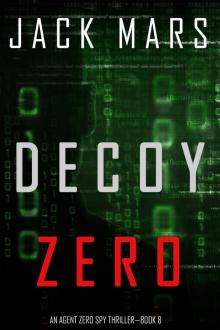 Decoy Zero
Decoy Zero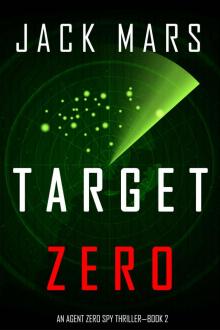 Target Zero
Target Zero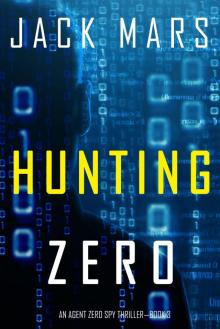 Hunting Zero
Hunting Zero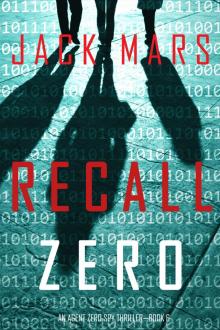 Recall Zero
Recall Zero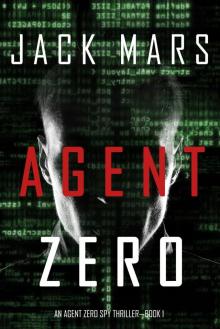 Agent Zero
Agent Zero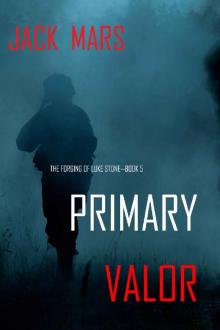 Primary Valor
Primary Valor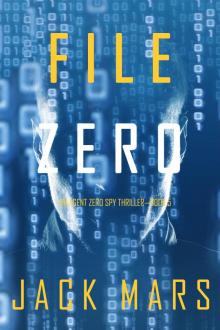 File Zero
File Zero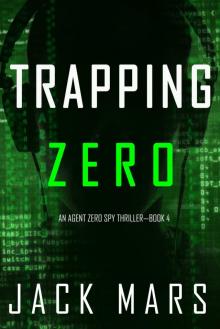 Trapping Zero
Trapping Zero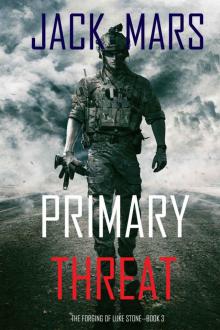 Primary Threat
Primary Threat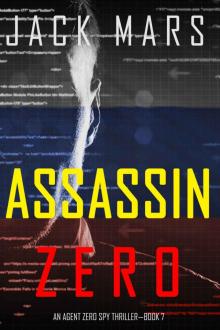 Assassin Zero
Assassin Zero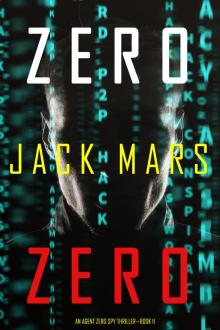 Zero Zero
Zero Zero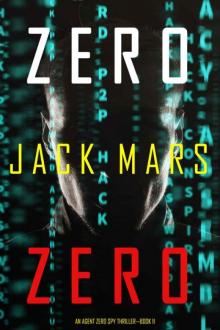 Zero Zero (An Agent Zero Spy Thriller—Book #11)
Zero Zero (An Agent Zero Spy Thriller—Book #11)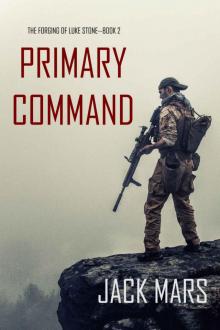 Primary Command
Primary Command![[Luke Stone 02.0] Oath of Office Read online](http://i1.bookreadfree.com/i/03/21/luke_stone_02_0_oath_of_office_preview.jpg) [Luke Stone 02.0] Oath of Office
[Luke Stone 02.0] Oath of Office House Divided
House Divided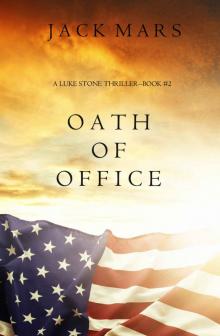 Oath of Office (a Luke Stone Thriller—Book #2)
Oath of Office (a Luke Stone Thriller—Book #2) Our Sacred Honor (A Luke Stone Thriller—Book 6)
Our Sacred Honor (A Luke Stone Thriller—Book 6)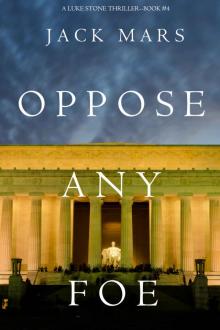 Luke Stone 04 - Oppose Any Foe
Luke Stone 04 - Oppose Any Foe Our Sacred Honor
Our Sacred Honor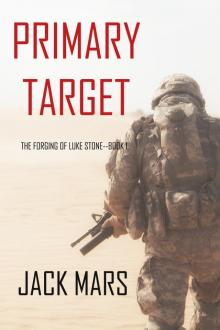 Primary Target
Primary Target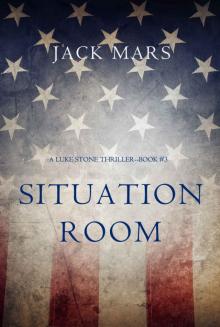 Luke Stone 03 - Situation Room
Luke Stone 03 - Situation Room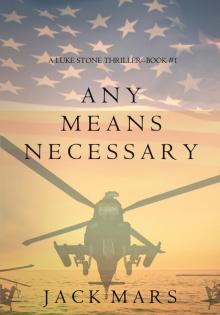 Any Means Necessary: A Luke Stone Thriller (Book 1)
Any Means Necessary: A Luke Stone Thriller (Book 1)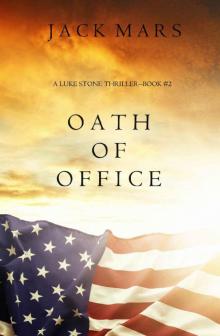 Oath of Office
Oath of Office